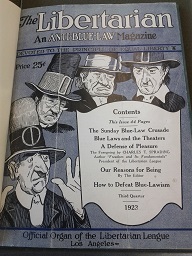City of Ruins and Wild Roses
What I’m Reading: Steven Runciman, The Fall of Constantinople, 1453, Chapters 1-2, The Dying Empire and The Rising Sultanate. From the first chapter, on the cultural and intellectual renaissance amidst the material and political collapse of Constantinople, in the last days of the Christian Emperors. A city of artists and scholars, a city of ruins and wild roses; the list of emperors was written on the stones of the city and it was drawing to its close.
[4] Disillusion set in. The fourteenth century was for Byzantium a period of political disaster. For some decades it seemed likely that the great Serbian kingdom would absorb the whole empire. The provinces were devastated by the revolt of a mercenary band, the Catalan Company. There was a long series of civil wars, begun by personal and dynastic quarrels at the Court and embittered when social and religious parties were embroiled. The Emperor John V Palaeologus, who reigned for fifty years, from 1341 to 1391, was dethroned no less than three times, once by his father-in-law, once by his son, and once by his grandson, though in the end he died on the throne.[1] There were ruinous visitations of plague. The Black Death in 1347, striking at the height of the civil war, carried off at least a third of the Empire’s population. The Turks took advantage of the troubles in Byzantium and the Balkans to cross into Europe and to penetrate further and further, till by the end of the century the Sultan’s armies had reached the Danue, and Byzantium was entirely encircled by his dominions. All that was left of the Empire was Constantinople itself and a few towns strung along the Marmora coast of Thrace and the Black Sea coast . . . a few small islands, and the Peloponnese. . . .
[5] By a whim of history this period of political decline was accompanied by a cultural life more eager and more productive than had been known at any other time in Byzantine history. Artistically and intellectually the Palaeologan era was outstanding. The mosaics and frescoes of the early forteenth century . . . show a vigour, a freshness and a beauty that make Italian work of the period look primitive and crude . . . .[2] But art of such splendour was costly to execute. Money began to run short. In 1347 it was noticed that the jewels in the diadems used for the coronation of John VI and his Empress were really made of glass.[3] . . . Intellectual life, however, which was less dependent on financial backing, lasted brilliantly on. The University of Constantinople had been refounded at the end of the thirteenth century by a great minister, Theodore Metochites, a man of fine taste and learning . . . .[4] The chief intellectual figures of the fourteenth century, men like Nicephorus Gregoras the historian, Gregory Palamas the theologian, Nicholas Cabasilas the mystic, or the philosophers Demetrius Cydones and Akyndinus, all at some time studied at the University and came under the influence of Metochites. All, too, were helped and encouraged by his successor as chief minister, John Cantacuzenus, though some of them were to break with him after he usurped the Imperial crown. Each of [6] these scholars was individual in his thought; their controversies were as lively as their friendships. They argued, as the Greeks had always argued for nearly two thousand years, on the rival merits of Plato and Aristotle. They argued over semantics and logic; and their arguments inevitably encroached upon theology . . . .
[9] These passionate debates took place in an atmosphere of material decay. Despite the brilliance of its scholars Constantinople by the close of the fourteenth century was a melancholy, dying city. The population which, with that of the suburbs had numbered about a million in the twelfth century, had shrunk now to no more than a hundred thousand and was still shrinking.[5] The suburbs across the Bosphorus were in Turkish hands. Pera, across the Golden Horn, was a Genoese colony. Of the suburbs along the Thracian shores of the Bosphorus and the Marmora, once studded with splendid villas and rich monasteries, only a few hamlets were left, clustering round some ancient church. The city itself, within its fourteen miles of encircling walls, had even in its greatest days been full of [10] parks and gardens, dividing the various quarters. But now many quarters had disappeared, and fields and orchards separated those that remained. The traveller Ibn Battuta in the mid-fourteenth century counted thirteen distinct townlets within the walls. To Gonzalez de Clavijo, in the first years of the fifteenth century, it was astounding that so huge a city should be so full of ruins; and Bertrandon de la Broquière a few years later was aghast at its emptiness. Pero Tafur in 1437 remarked on its sparse and poverty-stricken population. In many districts you would have thought that you were in the open countryside, with wild roses blooming in the hedgerows in spring and nightingales singing in the copses . . . .[6]
At the south-east end of the city the buildings of the old Imperial Palace were no longer habitable. The last Latin Emperor in his extremity . . . had stripped the lead off all the roofs and disposed of them for cash. Neither Michael Palaeologus nor any of his successors had ever had money enough to spare to restore them. . . .
. . . [19] To many Western historians it has seemed that the Byzantines in rejecting union were wantonly and obstinately committing suicide. The simple folk led by the monks were moved by a passionate loyalty to their creed, their liturgy, and their traditions, which they believed to be divinely ordained; it would be sin to desert them. It was a religious age. The Byzantines knew that this earthly life was only a prelude to the everlasting life to come. To buy material safety here below at the price of eternal salvation was not to be considered. There was, too, a streak of fatalism in them. If disaster was to befall them it would be God’s punishment for their sins. They were pessimists. In the damp, melancholy climate of the Bosphorus the natural gaiety of the Greeks was dimmed. Even in the great days of the Empire men had whispered of prophecies that it would not last for ever. It was well known that on stones throughout the city and in the books written by the sages of the past the list of emperors was written, and it was drawing to an end . . . .[7]
— Steven Runciman (1965), The Fall of Constantinople, 1453, pp. 4-6; 9-10; 19.
- [1]Ostrogorsky, op. cit. [History of the Byzantine State (trans. Hussey)] pp. 476-84.↩
- [2]For Palaeologan art see Beckwith, The Art of Constantinople, pp. 134 ff.↩
- [3]Gregoras, op. cit. [Nicephoras Gregoras, Romaike Historia, Corpus Scriptorum Historiae Byzantinae] II, pp. 788-9.↩
- [4]For Metochites and the intellectual life of his time, see Beck Theodoros Metochites, passim↩
- [5]Schneider, Die Bevölkerung Konstantinopels im XV Jahrhundert, Nachrichten der Akademie der Wissenschaften in Göttingen, Phil.-Hist. Klasse, 1949, pp. 233-44.↩
- [6]Ibn Battuta, Voyages, ed. Defremery & Sanguinetti, II, pp. 431-2; Gonzales de Clavijo, Diary, trans. Le Strange, pp. 88-90; Bertrandon de la Broquière, Voyage d’Outremer, ed. Schéfer, p. 153; Pero Tafur, Travels, trans. Letts, pp. 142-6. Gennadius, himself a Constantinopolitan, calls the city poverty-stricken and for the most part uninhabited; Oeuvres Complètes de Gennade Scholarios, ed. Petit and others, I, p.287, and IV, p. 405.↩
- [7]See Diehl, De quelques croyances byzantines sur la fin de Constantinople, B.Z., xxx; Vasiliev; Medieval Ideas of the end of the World, Byzantion XVI, 2, pp. 462-502. Gill, op. cit. p. 378, believes that Gennadius and his friends considered the end of the world to be coming. I think that he takes too literally their genuine fatalistic conviction that the reign of anti-Christ, by which they meant the Sultan, was inevitable.↩




 I’m starting in on work for the first issue of Clarence L. Swartz and Charles T. Sprading’s magazine, The Libertarian, which began publication in 1923. The magazine was the official organ of Sprading’s
I’m starting in on work for the first issue of Clarence L. Swartz and Charles T. Sprading’s magazine, The Libertarian, which began publication in 1923. The magazine was the official organ of Sprading’s 
